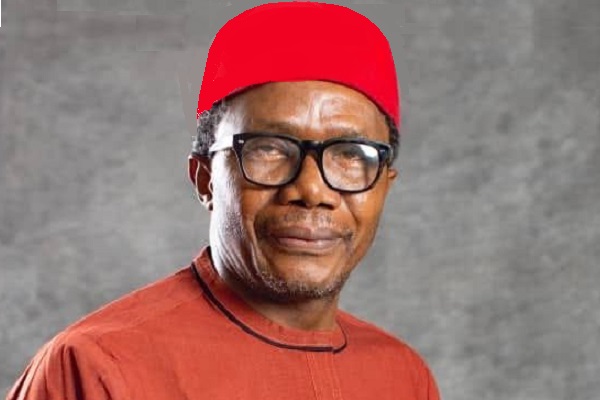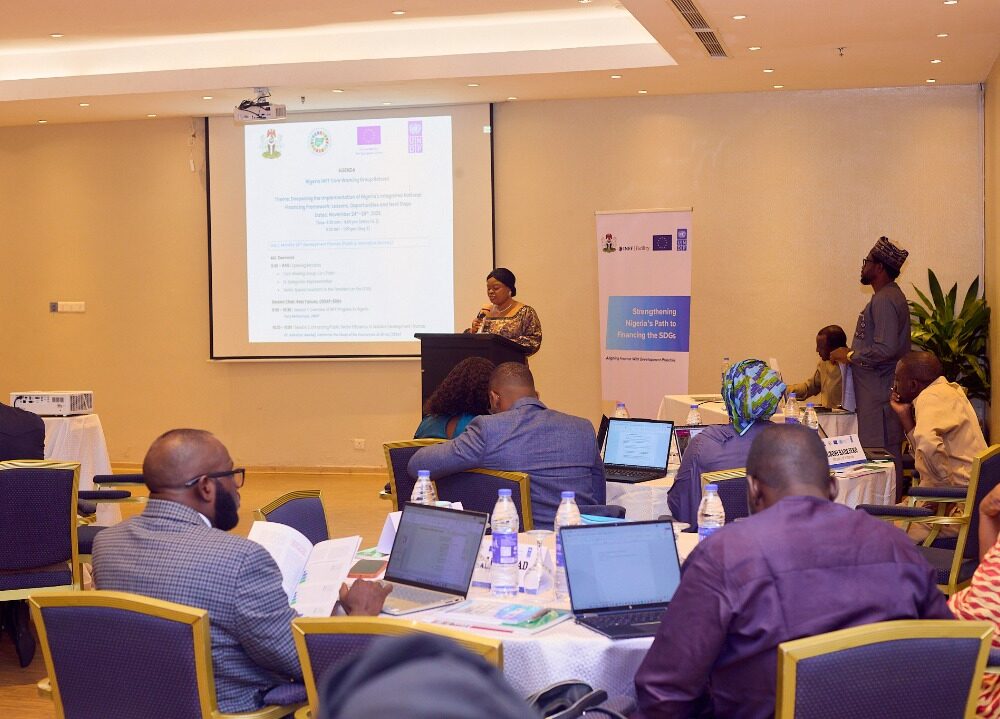One is reminded of carved-up Christmas turkey when they consider Nigeria and how both foreigners and its citizens plunder its resources. An Igbo proverb that refers to the guidelines for cultivating newly discovered land that belongs to no one in the community is “Okata okulu” (farm as you may). The elders would frequently declare a day on which the people would farm the land because no one owned it. Everyone gathers on the designated day and hour, and each person tills as much of the land as their strength carries them.
That’s how Nigeria has come to be. Prebendalism, or the idea held by government officials that resources owned by the government are their own, allows citizens to plunder as much of the common resources as they can. To them, stealing government funds is not considered theft. But they would amputate a twelve-year-old who stole a phone somewhere in the north and lynch another who stole one thousand naira down south, but they would embrace government officials who stole billions of naira and offer them front pews in churches and mosques.
Since Nigeria doesn’t seem to belong to anyone as a geographical expression, plundering is the norm. Because of this, no one in Nigeria manages for the benefit of the people or the advancement of the country. Systematic class fraud is taking place, with the deliberate goal of crippling the economy and imploding the country.
This is the reason for the escalation of insecurity. Security personnel are also not exempt. They are Nigerians as well, and they would gather anything they could, not believing that their country even exists. Generals embezzle money intended for arms and soldiers’ living expenses while troops who dare to object face court-martial, imprisonment, or dismissal.
Therefore, corruption, the politicisation of national security, and a lack of any sense of patriotism all contribute to Nigeria’s current state of insecurity. Three decades ago, Nigeria was considered to be among the world’s safest countries. For Nigerians, terrorism meant something else entirely – a fairytale from distant lands. However, because the people in command of the borders turned a blind eye for no less than honourable reasons, terrorists and Janjaweed bandits have taken over forests in both north and south of Nigeria.
But the question is: What precisely are the underlying reasons for Nigeria’s insecurity, for which the nation must remedy to have peace, growth and progress? Pains that have been referred might never show up where they do. That is what symptoms are, alerts to a more serious underlying condition. Ignored or dismissed symptoms frequently result in more difficult situations later on when the underlying illnesses manifest. That is precisely what happened with Nigerian insecurity: crisis entrepreneurs profited handsomely from the suffering and lives of Nigerians caught in security traps, while the warnings were disregarded and the actions taken were haphazard.
Prebendal politics is Nigeria’s main cause of insecurity. Even the most horrible of the others are copies of political corruption. Accordingly, prebendal politicians, who embezzled the country’s common resources and left the populace stranded, hungry, and enraged, are to blame for terrorism, Janjaweed banditry, killer herdsmen, insurgency, militancy, cultism, ritual murders, and Yahoo Plus, among other forms of insecurity in the land.
Bad governance is a common feature that underpins and gives insecurity its oxygen.
Why prebendal political players score so highly on the rating because they are the ones who pilfered public monies in large lumps. They embezzled the funds intended for economic growth, job creation, and development. They should appropriately viewed as economic terrorists, who the other terrorists, militants, rebels, and bandits are immitating.
To counteract insecurity, it is therefore essential to overthrow prebendal political leaders and recover their loot in a manner akin to how the country handled the Abacha loot.
Yes, prebendalism must be addressed with decisiveness. And stopping government officials’ meals out of the budget is the right place to start. Only Nigeria and Africa feed their leaders; no country in the West does.
The rich feed the poor in the West, but in Nigeria and other parts of Africa, the impoverished feed the rich. In psychology, this is known as means-end inversion.
Asset declaration need be made public both before and after an individual assumes office. It is morally and legally unacceptable for a public official to conceal his wealth and income from his employers. He or she may choose to keep their privacy by not running for or accepting any public office at all. No one enters the kitchen if they don’t want to get heated.
A new law that stipulates an extremely long sentence—possibly life—for corruption must be passed. Because it is wicked, corruption ought to be regarded on par with armed robbery. In addition to being theft, corruption is a moral blight and a crime of betrayal. Because of this, dishonest government officials in China are executed by being tied to a stake and shot. They view it as a waste sending them to jail, and as a result of this management of public resources, their nation has grown to become the largest economy in the world, possessing reserves exceeding $1 trillion.
In Nigeria, corruption is the primary cause of all other crimes as well as their secondary consequences. Politicians in Nigeria fostered and infiltrated the terrorist movement among the populace. Terrorists from Boko Haram had government positions in their early years. One even held the position of commissioner. Following that, they were forced underground and withdrew into the Sambisa jungle. Dealing with them decisively was first challenging since they had been politically involved in the past and had developed through politics.
In a similar spirit, Honourable Usman Baraje previously told Nigerians about how Janjaweed bandits were brought into Nigeria to remove Goodluck Jonathan from office and then left on their own, which led them to kidnap people for ransom and extort residents for taxes. The fundamental reason it has been difficult to weed them out is the political undertone of banditry. Videos and images have surfaced of their leaders posing with governors or sporting turbans from traditional monarchs in the north.
In addition, politicians have used cultists as private armies and political thugs to cause unrest in Nigeria. For their elections and security, the politicians arm them like their own personal armies. These cultists and thugs benefit from political coverage and get away with murder and other serious crimes. Since they can no longer retrieve the guns the politicians illegally bought for them from the black market, many of them turn into armed robbers and kidnappers.
Under President Muhammadu Buhari’s administration, killer herdsmen gained fresh momentum. Anywhere they could, they let their animals graze. They’d become so brazen and reckless that they were uprooting crops and feeding their cattle, even going so far as to set farms on fire to force the early emergence of grass so the animals would have food while the farmers starved. Farmers that ventured were raped, wounded, and killed.
The tension between farmers and killer herdsmen has intensified after a governor revealed to Nigerians on national television that he was involved in a project aimed at resettling an ethnic group that had become stranded around Africa in the country. Communities have been sacked as a result, and their attackers have taken control of the sacked communities. Effective management of the situation is also hampered by the killer herdsmen’s political cover.
Insurgents and militants are engaged in economic conflicts of marginalisation as democracy has failed to bring about progress and possibilities. The loud protests against the Niger Delta’s oil not helping the people living there while it develops other regions of the nation are known as the Niger Delta militancy. Thus, it is a fight for inclusion and social justice.
A president showed audacity by calling the Igbo ethnic group, which has potentially over 40 million individuals, just a dot on a circle.
In addition, numerous types of insecurity and violent crimes have been brought on by economic stagnation among young people in general. With the economy growing worse, the majority of young people who graduated more than ten years ago have no chance of finding work. The outrageous displays of extravagant wealth exhibited by politicians without any labour have also instilled in young people the desire to become wealthy quickly. As a result, Yahoo Boys and Yahoo Plus were introduced. Yahoo Plus is the Yahoo Boys who, supposedly, kill for rituals to spur their Yahoo activities.
Therefore, prebendal politicians have some of the blame also in this final instance as well. Thus, the political elites responsible for the different types of insecurity in Nigeria are the ones who need to address the issue. The key is in their hand. They should use the silver bullet and save the nation.





